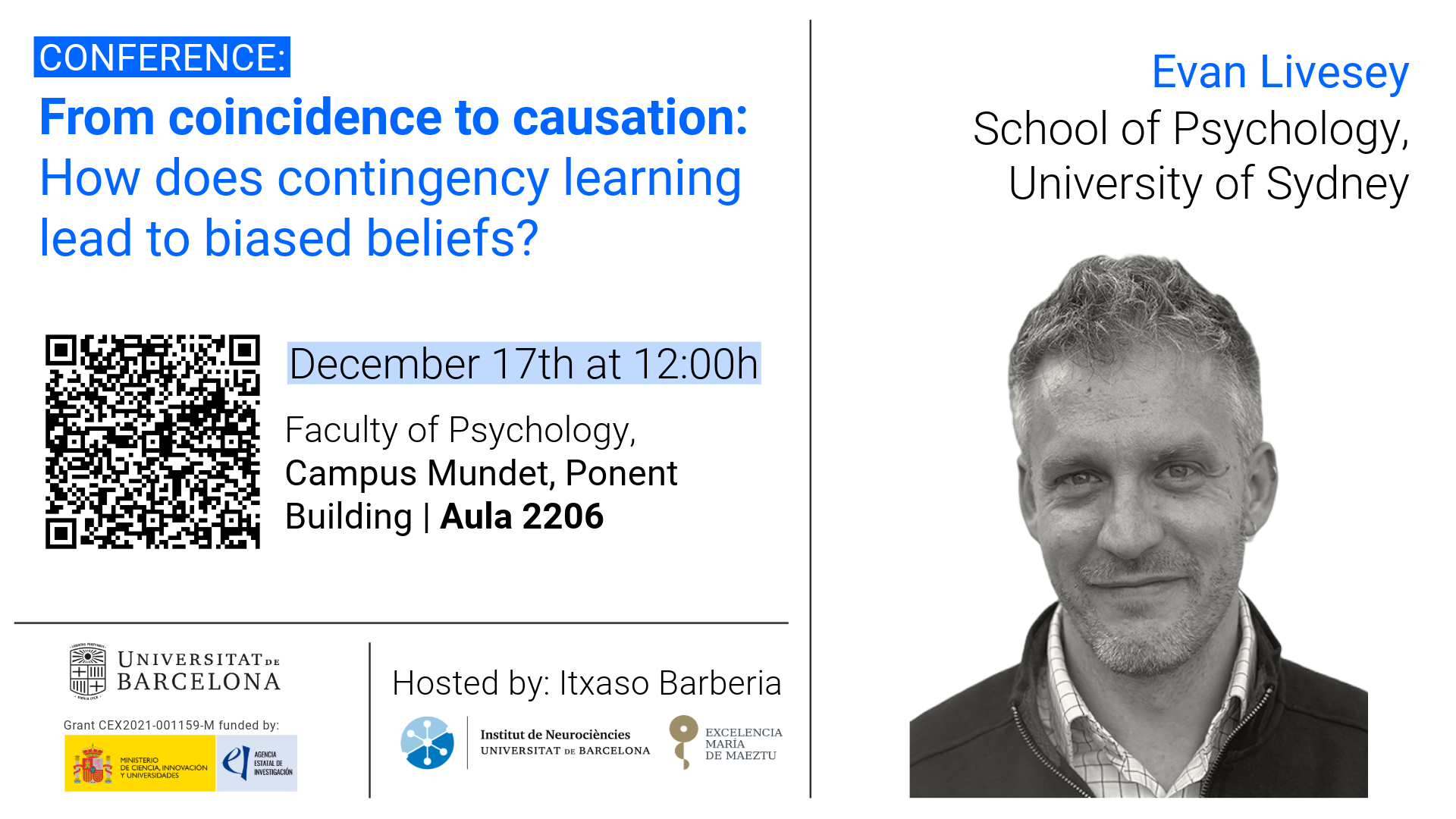From coincidence to causation: How does contingency learning lead to biased beliefs?
17/12/2024 ⎯ 12:00 pm - 1:00 pm
- This event has passed.

Cultural and technological shifts over the last 20 years have radically changed the information landscape that most of us face every day. When it comes to making health and lifestyle decisions, there is no shortage of opinion, products, therapies and practices, many with highly questionable efficacy.
Faced with an oversupply of (mis)information, trust in one’s own personal experiences has never been more important. But to what extent are the beliefs we develop through experience really trustworthy? Researchers have long been interested in how we arrive at accurate judgments about causal relationships when experiencing sequential events, and under what conditions we are misled by these experiences. I will report some recent work exploring attentional and learning biases that influence what we infer from observing the co-occurrence of events. I will focus on how prior information, presented in a variety of forms, changes what we learn from sequentially experienced contingency information and discuss attempts to inoculate people from forming false beliefs.
